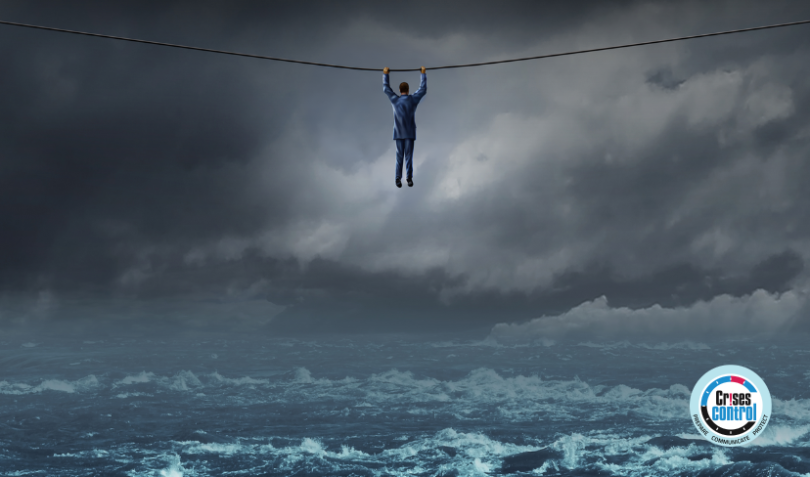In today’s unpredictable world, businesses face an array of potential crises, from natural disasters to unforeseen emergencies. This highlights the critical importance of a robust crisis management plan. Crises Control, a pioneering leader in Crisis Management & Alerting Software, offers innovative solutions tailored to help businesses navigate through turbulent times. This blog will discuss the importance of a robust Crisis Management Plan and how Crises Control can aid your business during a natural disaster. From Risk Assessment to Rapid Response and Recovery, Crises Control is here to help.
The Essence of Crisis Management
Crisis management is a strategic approach that empowers businesses to adeptly respond to and recover from unforeseen events. It encompasses a suite of processes, procedures, and cutting-edge technologies meticulously designed to safeguard both personnel and valuable assets.
Why Natural Disasters Demand Specialised Crisis Management
Natural disasters are inherently unpredictable and wield the potential to inflict severe repercussions on businesses. From hurricanes and earthquakes to floods and wildfires, these cataclysmic events can disrupt operations, resulting in substantial financial losses and reputational harm.
Building a Resilient Crisis Management Plan with Crises Control
At the core of business continuity lies a meticulously crafted crisis management plan. This blueprint comprises several pivotal components, each instrumental in formulating a comprehensive response strategy.
Risk Assessment
Understanding the specific natural disasters that could potentially impact your region is of paramount importance. Crises Control’s software integrates advanced analytics to meticulously assess risks, providing tailored recommendations based on a meticulous analysis of your unique circumstances.
Clear Communication Channels
Effective communication is the bedrock of crisis management. The Emergency Notification System (ENS) by Crises Control serves as an invaluable lifeline, ensuring that crucial messages reach the right individuals at the right time. It leverages an array of channels, including mobile notifications, emails, and even voice calls.
Defined Roles and Responsibilities
Establishing a dedicated crisis management team, with clearly defined roles and responsibilities for each member, is crucial. Crises Control’s platform facilitates seamless coordination among team members, ensuring everyone is well-versed in their tasks and responsibilities.
Training and Drills
Regular training sessions and drills are imperative to acquaint employees with emergency procedures. Crises Control offers simulated scenarios to rigorously test the efficacy of your crisis management plan, affording the opportunity for refinement and enhancement as needed.
Resource Allocation
Having the necessary resources readily available, including emergency supplies and equipment, is pivotal. The platform streamlines resource allocation, ensuring you are well-prepared to weather any natural disaster that may arise.
Leveraging Technology for Crisis Management
Crises Control pioneers the use of technology to elevate crisis management to new heights, offering innovative solutions tailored to the modern business landscape.
Automated Alerts and Notifications: Swift and Precise
The ENS automatically triggers alerts based on predefined criteria, ensuring swift dissemination of critical information to the relevant stakeholders.
Geospatial Intelligence: Real-Time Insights for Informed Decisions
Crises Control incorporates geospatial data to provide real-time insights into the impact of natural disasters, enabling more informed decision-making and response strategies.
Data Integration and Analysis: A Unified View for Effective Response
The platform seamlessly integrates with existing systems, providing a unified view of operations and enabling data-driven responses for more efficient crisis management.
Ensuring Business Continuity with Crises Control
In the face of a natural disaster, your business need not succumb. With Crises Control’s innovative solutions, you can fortify your crisis management plan and emerge even stronger in the face of adversity.
Rapid Response and Recovery: Turning the Tide
The ENS expedites response times, enabling swift action to minimise damage and facilitate a speedy recovery, ensuring business continuity.
Post-Incident Evaluation: Learning from Experience
After the crisis has abated, a comprehensive evaluation is crucial. Crises Control provides robust reporting tools to assess the effectiveness of your response and identify areas for improvement, ensuring you are even better prepared for the next challenge.
Conclusion
In today’s fast-paced world, the unforeseen can strike at any moment. Natural disasters and emergencies, though unpredictable, need not leave businesses vulnerable. Through a meticulous crisis management plan, businesses can fortify themselves, ensuring the safety of their personnel and safeguarding their invaluable assets.
From risk assessment to the vital role of clear communication channels, each facet of crisis management plays a crucial role in a business’s resilience. Training, resource allocation, and the integration of cutting-edge technology serve as cornerstones in this strategic approach. Post-incident evaluation, a critical step often overlooked, allows businesses to learn and grow from their experiences.
Ready to Strengthen Your Crisis Management? Embracing a proactive approach to crisis management is not only commendable but also essential for any business. If you’re seeking guidance or have questions on how to fortify your crisis management plan, our experts at Crises Control are here to help. Request a free demo and discover how Crises Control can empower your business in navigating through the unpredictable with confidence.







